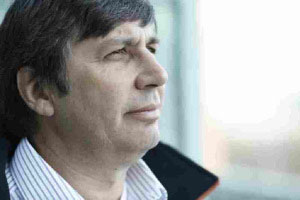| Posted: May 21, 2009 |
Pioneering physicist Andre Geim has been awarded prestigious Royal Society position |
|
(Nanowerk News) Already a Fellow of the Royal Society (FRS), Prof Geim has now been given a Royal Society Research Professorship to support his ground-breaking research into a super-thin two dimensional material called graphene.
|
|
Prof Geim, Director of the Manchester Centre for Mesoscience & Nanotechnology, made headlines around the world after discovering a new class of materials – including graphene - back in 2004 with Dr Kostya Novoselov.
|
 |
| Andre Geim
|
| Since then, thanks to hugely important contributions from visiting academic Dr Sergey Morozov, Dr Da Jiang – who now runs Manchester-based Graphene Industries – and Dr Irina Grigorieva, the material has become one of the hottest topics in the world of physics and materials science.
|
|
In recent years the graphene research team has had a stream of exciting new findings published in world-leading journals such as Science and Nature.
|
|
During 2010, the Royal Society will be celebrating its 350th Anniversary, and as part of the celebrations it has appointed Prof Geim to one of four Royal Society 2010 Anniversary Research Professorships.
|
|
These prestigious posts are designed to enable researchers to undertake independent, original research into any of the natural and applied sciences including medical and engineering science.
|
|
Research Professorships provide long-term support for world-class scientists of outstanding achievement and promise, allowing them to focus on research and collaboration.
|
|
|
|
Prof Geim is the first University of Manchester academic for many years to hold the position. Previous holders of Royal Society Research Professorships include five Nobel Laureates and five Presidents of the Royal Society.
|
|
Prof Geim will use the funding provided by the post to continue his research into the remarkable properties of graphene and its potential applications – which could include super-small transistors and sensors. He will hold the position for an initial period of 10 years.
|

